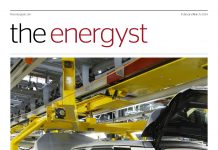Trials have been undertaken on a gas-fuelled generator to investigate the effect of using electric turbo compounding (ETC) technology on unburnt hydrocarbon (UHC) emissions, and initial findings suggest that a 25-50% reduction in emissions is achievable.
Bowman Power Group (the company that developed the technology) explains that this reduction in emissions was achieved by reducing the scavenging pressure in the engine cylinders, almost entirely eliminating fuel short circuiting and also reducing the release of non-combusted fuel.
The ability to cut UHC emissions has already been demonstrated in a recent installation with a UK waste-to-energy company, where a reduction of 32% (from 1,100 to 750ppm) was observed. This equates to a reduction in greenhouse gas emissions for this specific application of 12%, when taking both the direct reduction in CO2 emissions from the fuel savings (~5%) and reduction in CH4 emissions into account. This builds on Bowman’s existing track record of reducing CO2 emissions in generators, having already reduced carbon emissions by more than 300,000 tonnes as a direct result of fuel consumption improvements.
It is estimated that when methane emissions are included, the ETC system can achieve an 8-23% reduction in greenhouse emissions of gas-fuelled engines/generators over a 20-year time horizon.
Paul Dowman-Tucker, CEO of Bowman, commented: “The global energy mix needs to be greener and more energy efficient. From day one, that’s what we have set out to do with our ETC technology, enabling more efficient and cleaner operations with fossil fuels where it is necessary to use them. These latest results are exciting and, coupled with our existing strong track record for reducing CO2 emissions, really cement our commitment to this goal.”
Further demonstrations of these findings are planned for 2019



